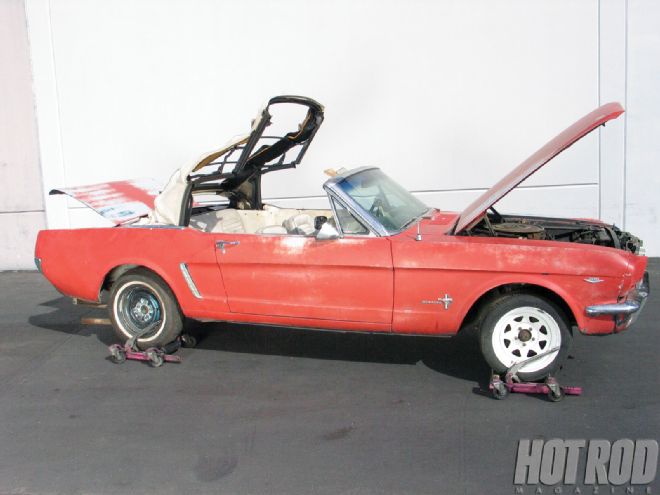
Until they frustrate us when they go bad, our car's electrical systems aren't top-of-mind. We'd rather bench-race our big-blocks than bench-test our starter motors. But when it comes to a full restoration, such as that being done on the Project 50 Mustang, every component on the car needs to be brought to like-new condition.
Project 50 is a '65 Mustang that the editors of Haynes manuals are restoring to commemorate the publishing company's 50th anniversary. A barn-find pony car that hadn't been driven for 20 years before it was purchased on eBay, Project 50 will be completed in time to go on display at this year's SEMA Show in Las Vegas. Its restoration is being tackled by the same hands-on editors who do the teardowns, research, photography, and writing for the Haynes publications, and much of the work can be seen in videos you can watch at www.haynes.com. The complete restoration will be the subject of a brand-new Haynes '64 1/2-'70 Mustang repair manual, and we're excerpting a few of the most critical restoration steps over several issues to provide a preview of what to expect from the book. So far in previous stories we've covered the freshening of the car's 289 V-8, C4 automatic transmission, driveline, and suspension. Now it's time to tackle the Mustang's electrical system.

Home restorers are often intimidated by the electrical system's complexity and the possibility of making expensive mistakes. But the Haynes editors tell us that electrical system work is actually easy. Most problems on older cars have simple solutions, such as loose or corroded connections or shorted wires. When a systematic approach is taken during the restoration, and all the wiring and connections are cleaned and inspected, the gremlins are chased away for good. That way you can spend your time finding more horsepower instead of finding short circuits.